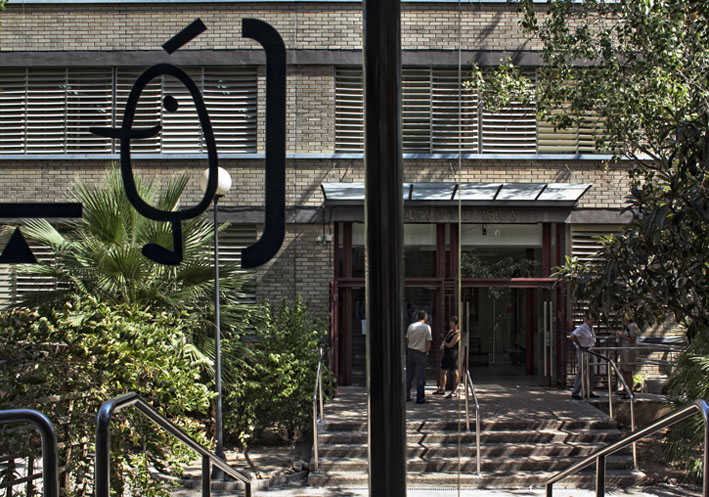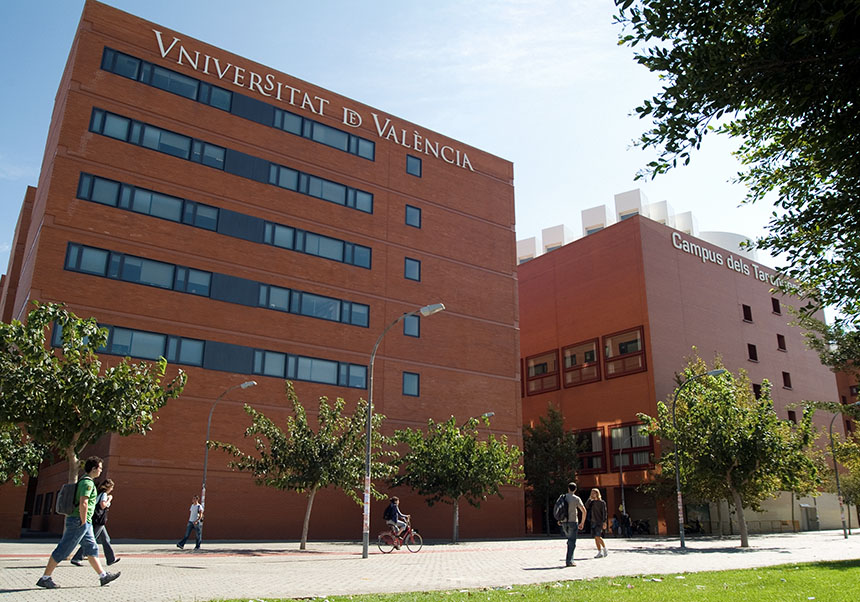The Universitat will offer a Double Degree in Physics and Chemistry and another in Physics and Mathematics from the academic year 2020-2021
- Press Office
- November 5th, 2019

From next academic year (2020-2021), the Universitat de València will offer double degrees in Physics and Chemistry and in Physics and Mathematics. The Governing Council has approved this extension of the Universitat’s academic offer at the meeting held on Tuesday, November 5th. The topic was presented by the Vice-Principal for Studies and Language Policy, Isabel Vázquez.
The double degree in Physics and Chemistry, for which 20 first places will be offered on its first academic year, consists of 332 credits organised into five academic years. The Universitat de València will be the third to offer this degree, after the University of Santiago de Compostela and the Autonomous University of Barcelona, which have registered cut-off grades of 12.29 and 12.73, respectively.
The degrees of Physics and Chemistry have a long tradition at the Universitat de València, and both stand out at the top of the most prestigious rankings. Specifically, the Nature INDEX 2019 places the two disciplines in second place in Spain. Both degrees are taught at a high level and have been involved in educational innovation projects since the degrees were introduced in 2010.
According to the Dean of Chemistry, Adela Mauri, this double degree will provide students with a “very solid preparation to face the challenges of the world of work in its different aspects: industry, teaching and research”. The Dean of Physics, Jordi Vidal, adds that this new Double Degree will facilitate the incorporation of the student body into the business world “through a powerful dual training”.
The Double Degree in Physics and Mathematics, on the other hand, responds to a long-standing request by its potential students, and proposes a solid training in two of the scientific fields with the greatest future and high demand. A clear example of this are the high access marks for this course: in Physics, a score of 12.69 was required, and in Mathematical Sciences, a score of 11.96.
This Double Degree, which will offer 30 places on its first academic year, consists of 330 credits organised into five academic years. The student body will have to take just one more subject, of six credits per year, in relation to the degree courses of origin, considerably less than in the double degrees offered by other universities. To this end, a great effort has been made to adapt and create synergy between both studies, in the words of the Dean of Mathematical Sciences, Joan Monterde.
For his part, the Dean of Physics indicates that the good level of the students who have access to these studies and the excellent teaching staff available can make the offer of this Double Degree one of the most attractive and highest quality of the Universitat de València with a projection of very high employability.
Concern and disappointment about funding
The Principal of the Universitat, Mavi Mestre, has expressed to the Governing Council her concern and disappointment at the attitude of the regional government regarding the funding of public universities in Valencia. The Principal demands, on the one hand, the signing of the collective agreement of the universities, in order to allow the improvement of the remuneration of the contracted teaching staff and the incorporation of new contracting figures. She also reiterated the need to eliminate the replacement fee. On the other hand, she has shown his concern and unease with the Consell de la Generalitat (Valencian Government Council) for the forecast of financing of universities for 2020, which means “not an improvement, as we have demanded, but a step backwards”.
The vice-Principal for Economy and Infrastructures, Justo Herrera, has stated in the same vein, recalling how autonomous social spending has improved since 2015, but that this effort has not affected universities. Herrera also explained that the Universitat de València, due to its singularity, is the most affected by this marginalisation in regional budgets.
Representatives of trade unions and different centres have called for coordinated action vis-à-vis the Generalitat (Valencian Government) in order to improve university resources.
Rejection to extreme right-wing groups attacks
In another point, the Governing Council has condemned the last agressions by extreme right-wing groups against acts organised by the Bloc d’Estudiants Agermanats. At the Faculty of Philology, Translation and Communication, a quatribarrada flag was torn down by far right-wing elements. And in the Faculty of Social Sciences, extreme right-wing groups professed threats and tried, without success, to boycott a round table in which the politician Joan Tardà participated. The Governing Council has made a new demonstration in favour of freedom of expression and the maintenance of university spaces as places of debate and criticism.















